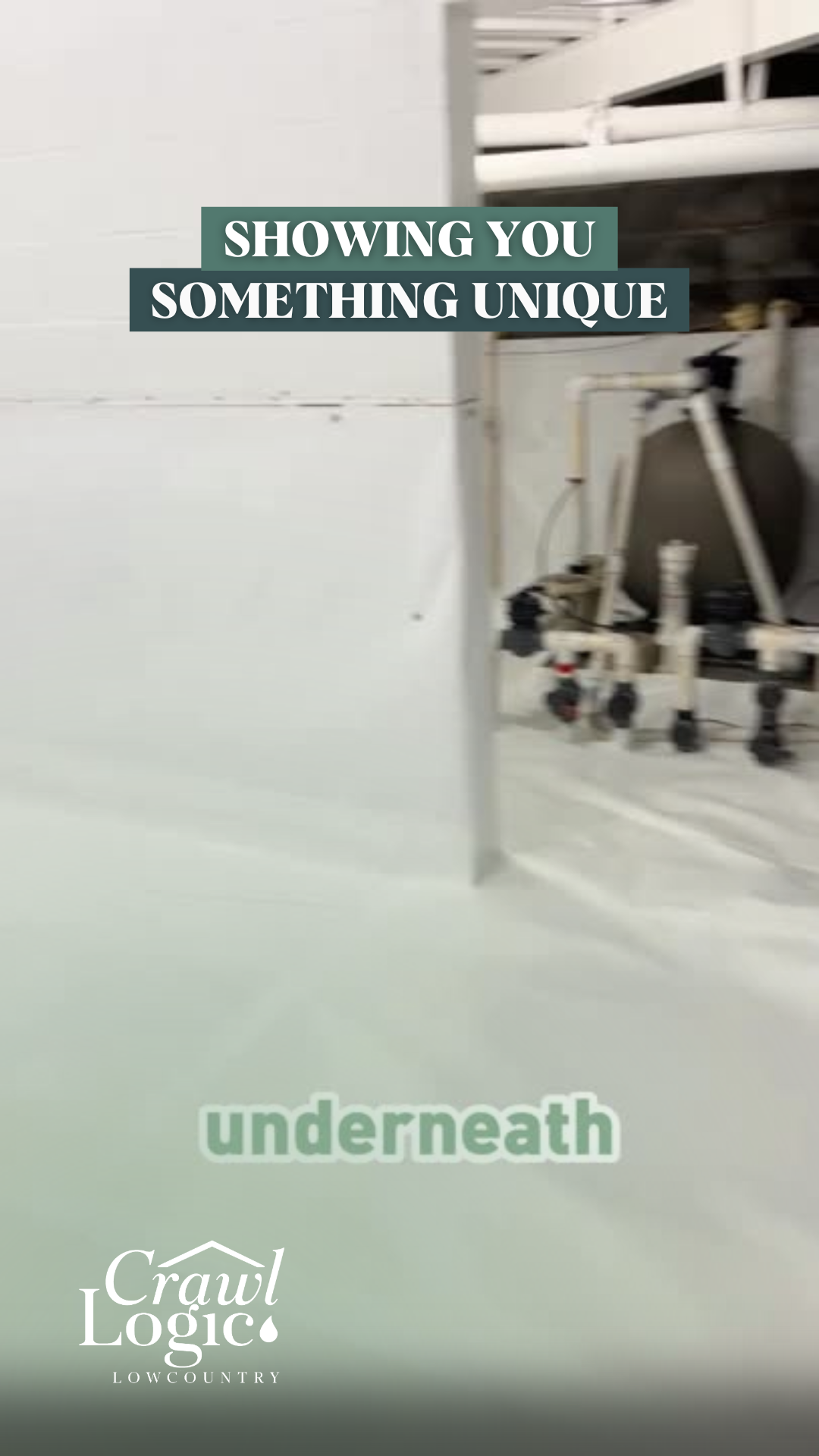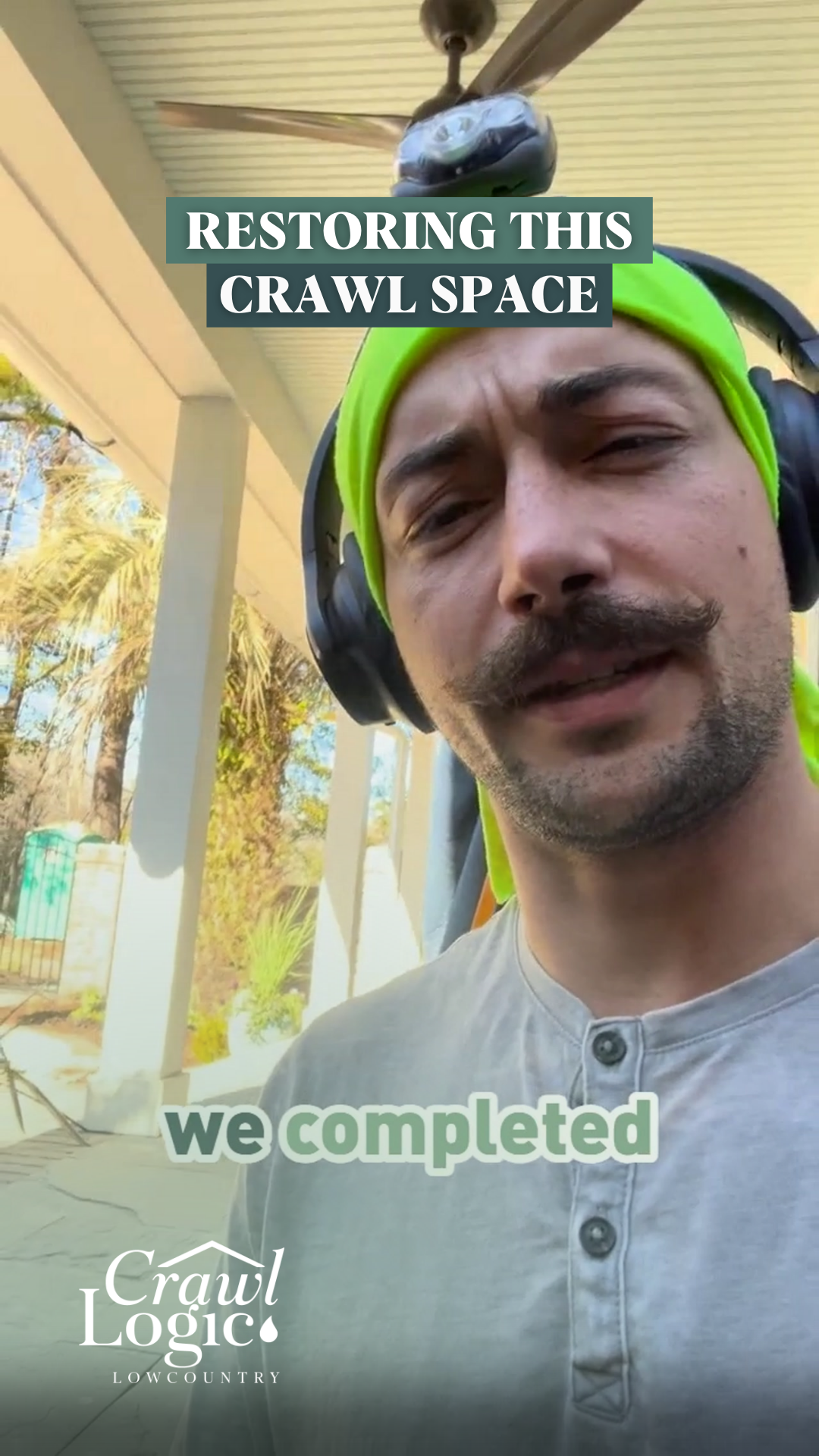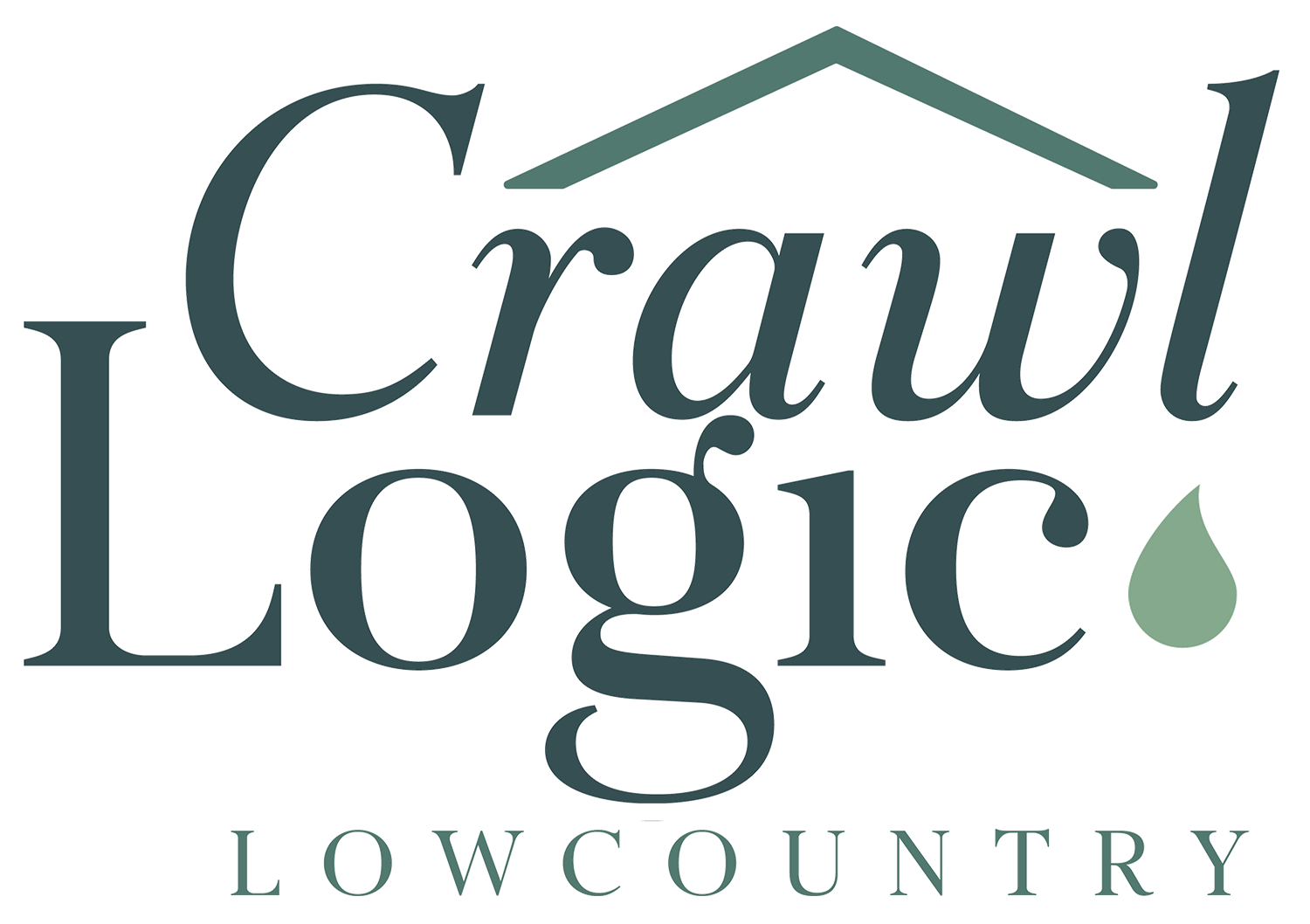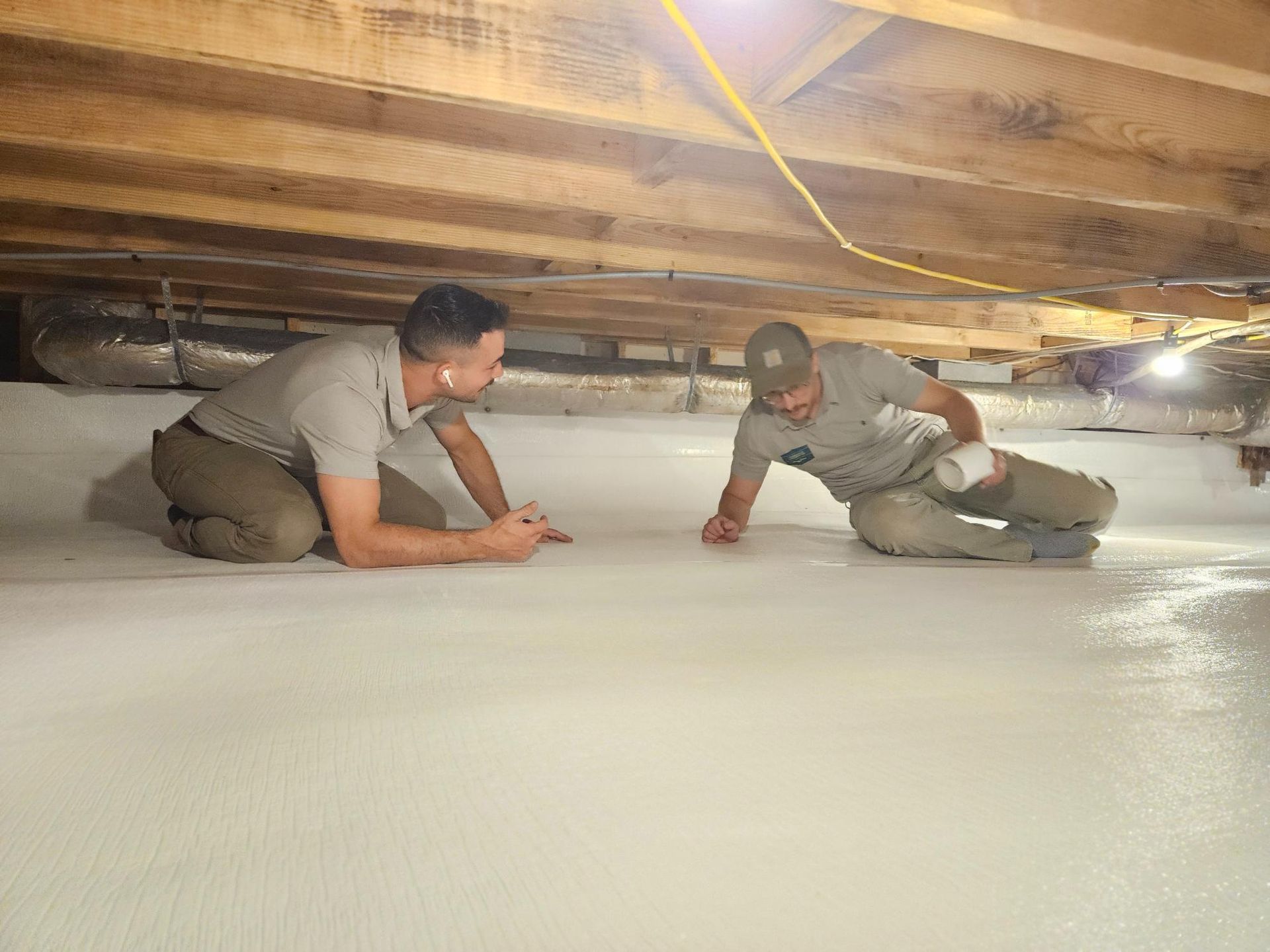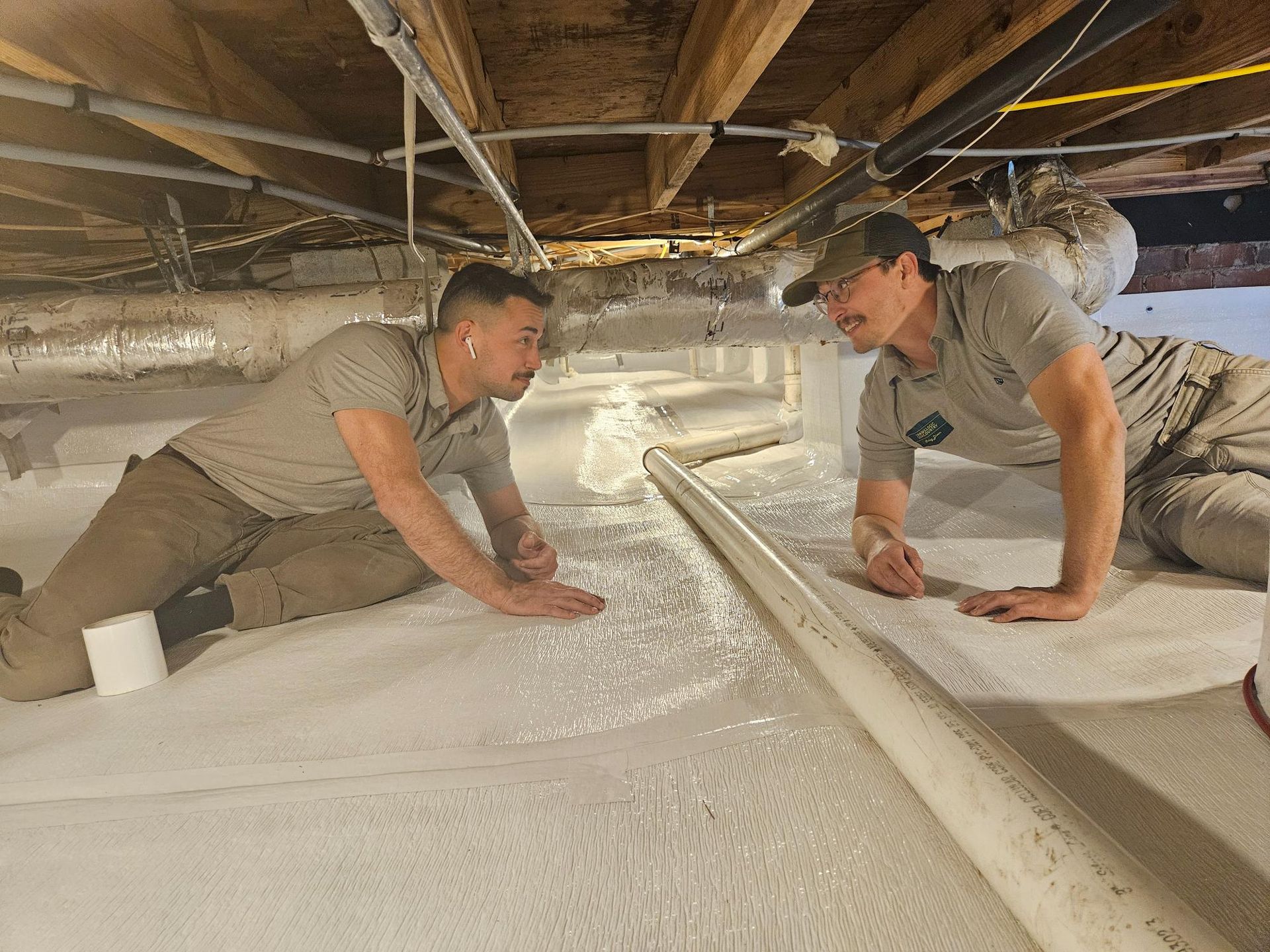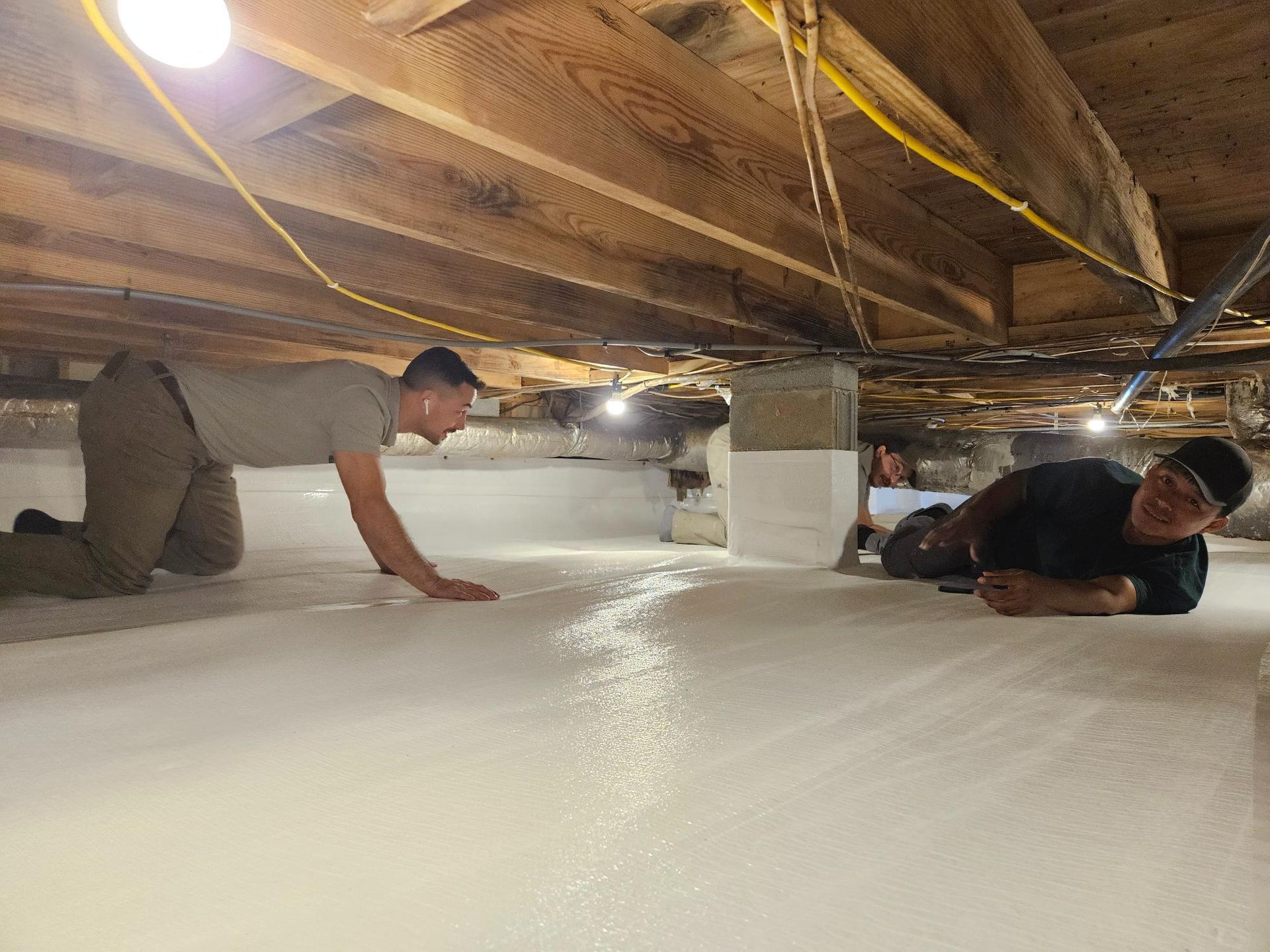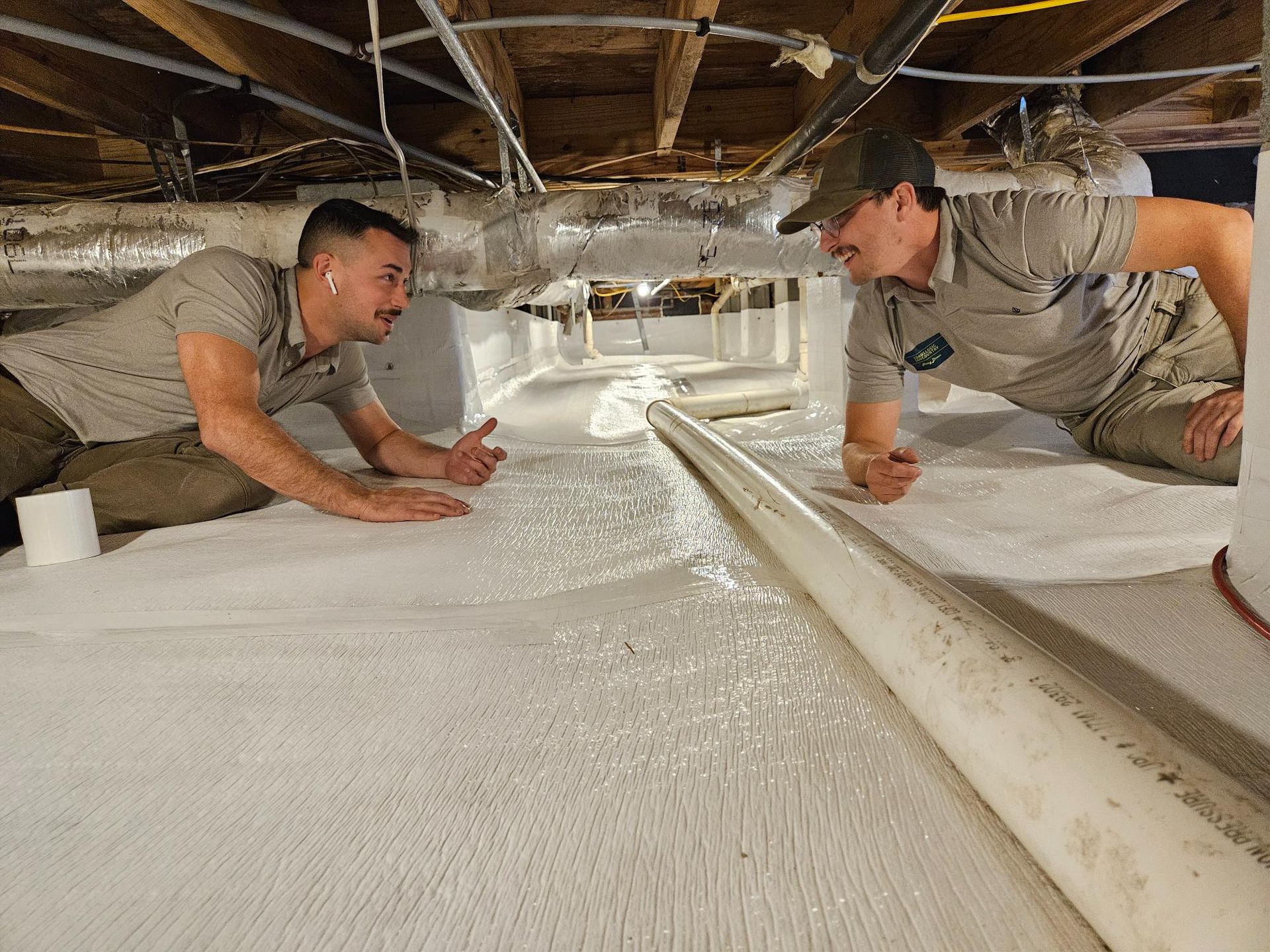What Those Flat Black Marks in Your Crawl Space Are Telling You
Crawl Logic Lowcountry
Reading the Signs Under Your House
HOW TO TELL IF YOUR CRAWL SPACE MOLD WAS PROPERLY TREATED
Here's something I run into all the time: I'm inspecting a crawl space for new homeowners, and they get nervous when I point out dark marks on the wood.
That's when I get to be the bearer of good news - which doesn't happen as often as I'd like in this business. Those marks?
They're actually telling us something positive about your home's history.
Think of it like finding old battle scars that have healed.
Sure, they show there was once a problem, but they also tell us someone took steps to fix it.
That's valuable information when you're trying to understand what's really going on under your house.
Welcome to Crawl Logic Lowcountry!
What These Marks Look Like
Let me paint you a picture of what we're looking for. When you see dark spots on wood in your crawl space, there are two key things to check: First, are they flat against the wood? Second, do you see what looks like drip marks running down from them?
These drip patterns are basically bleach tracks - they're like signatures left behind by whoever treated the mold. The chemicals they used bleached the wood in streaks, leaving behind these telltale marks. When you see this combination - flat dark areas with bleach drips - you're looking at mold that's been remediated.
It's different from active mold growth, which usually has more texture and depth to it. Sometimes you'll also notice a dappled pattern, kind of like what happens when dirt gets trapped under plastic. If these marks look flattened out, that's another sign someone's been down there with cleaning chemicals.
What This Tells You About Your Home
Here's the good news: these marks mean someone cared enough to address the mold problem. They didn't just ignore it or try to cover it up. But here's where my job gets interesting - these marks are like reading a history book about your crawl space.
Most of the time, the treatment you're seeing was done with bleach-based products. There are some fancier enzymatic treatments out there that can actually eat away the mold completely, but those are less common because they're expensive and often require you to vacate your house due to the strong chemicals.
What you're looking at is typically the standard treatment - and honestly, it's about as good as it's going to get unless you want to spend a lot more money or temporarily move out.
The Complete Picture
But here's the thing that keeps me up at night: treating mold without fixing what caused it is like putting a fresh coat of paint on a rusty car. Sure, it looks better for a while, but that rust is coming back if you don't address what caused it.
When I see these treatment marks, my next question is always about moisture control. Because in Charleston's climate, if you've had mold once, you'll have it again unless you fix the underlying issues. That means proper ventilation, moisture barriers, and sometimes full encapsulation.
What Homeowners Need to Know
So what does this mean for you? First, don't panic when you see these marks. They're actually a good sign - they show someone was paying attention to crawl space health. But here's your checklist:
- Check current moisture readings (anything over 15% is trouble)
- Look for signs of new growth around the treated areas
- Pay attention to any musty smells
- Keep an eye on your humidity levels
The key is understanding that mold treatment is just the first step. The real solution is preventing it from coming back. That's why we focus so much on proper moisture control in every crawl space we work on.
The Real Solution
Listen, I'm glad when I see these treatment marks because it means someone was paying attention to your crawl space. But I want you to be the last owner who has to deal with mold under your house. That means going beyond just treating symptoms - we need to fix the root cause.
Think about it this way: If your roof was leaking, you wouldn't just keep wiping up the water, right? You'd fix the roof. Same principle applies under your house. Mold treatment is important, but preventing it from coming back is the real goal.
Here's what I tell every homeowner: Knowledge is power. Now you know how to spot signs of previous mold treatment - that's great. But don't stop there. If you're seeing these marks in your crawl space, let's talk about how to make sure they stay in the history books where they belong.
Want a professional to take a look at your crawl space? Give us a call. We'll tell you exactly what those marks mean for your home, check current moisture levels, and make sure you've got the right protection in place. Because at Crawl Logic, we're not just treating problems - we're preventing them from coming back.
